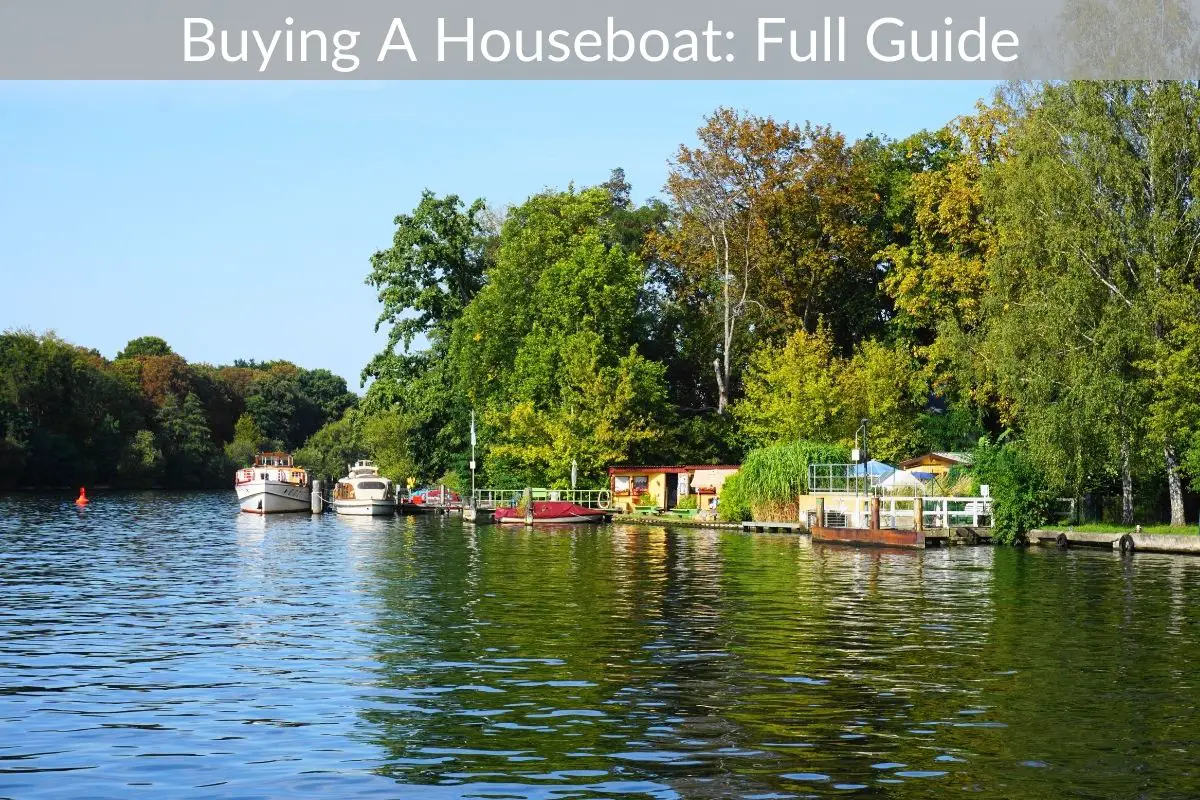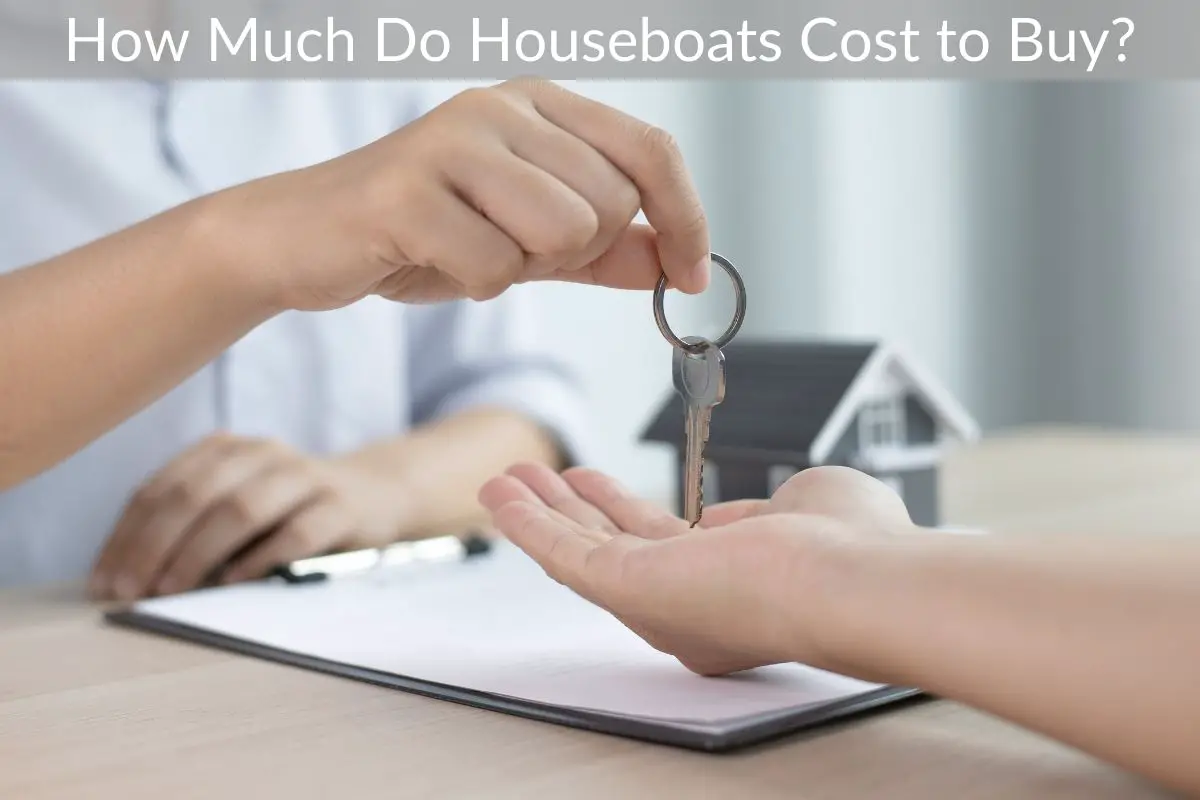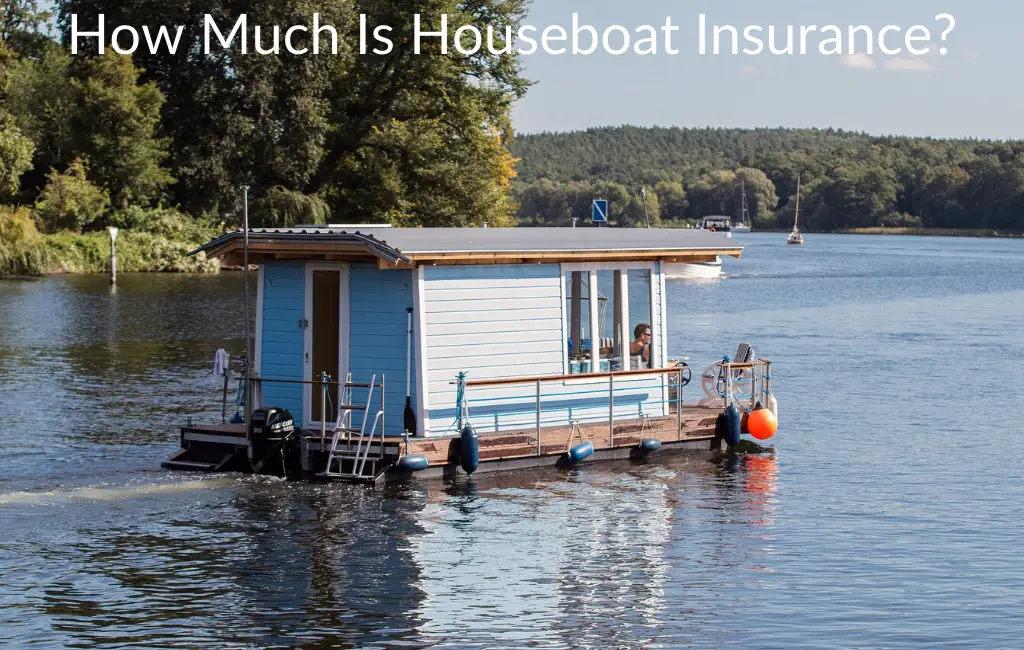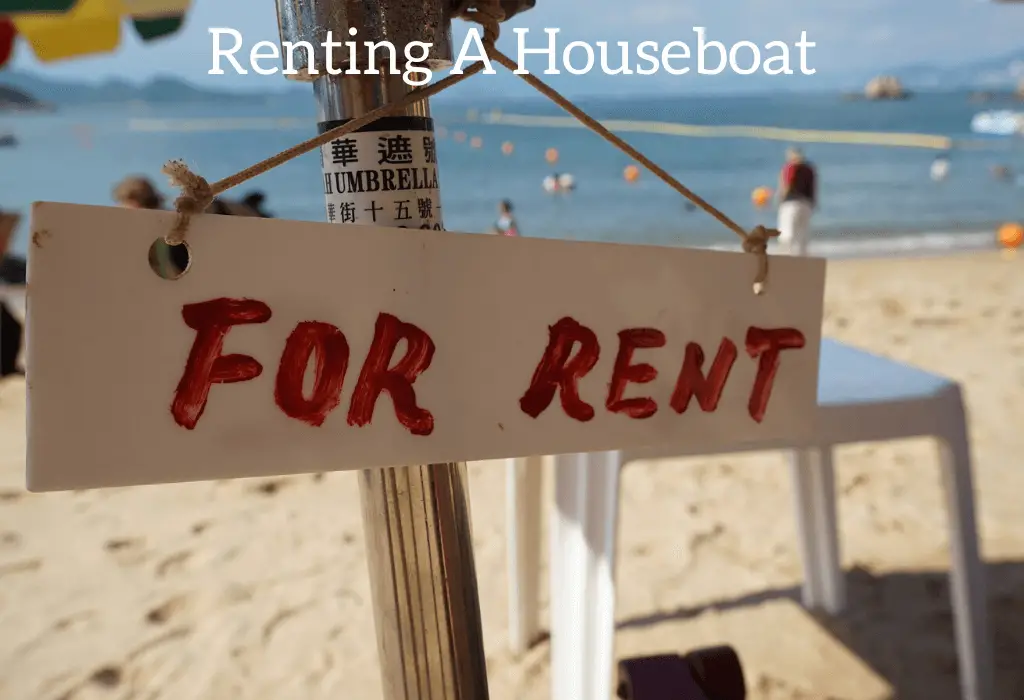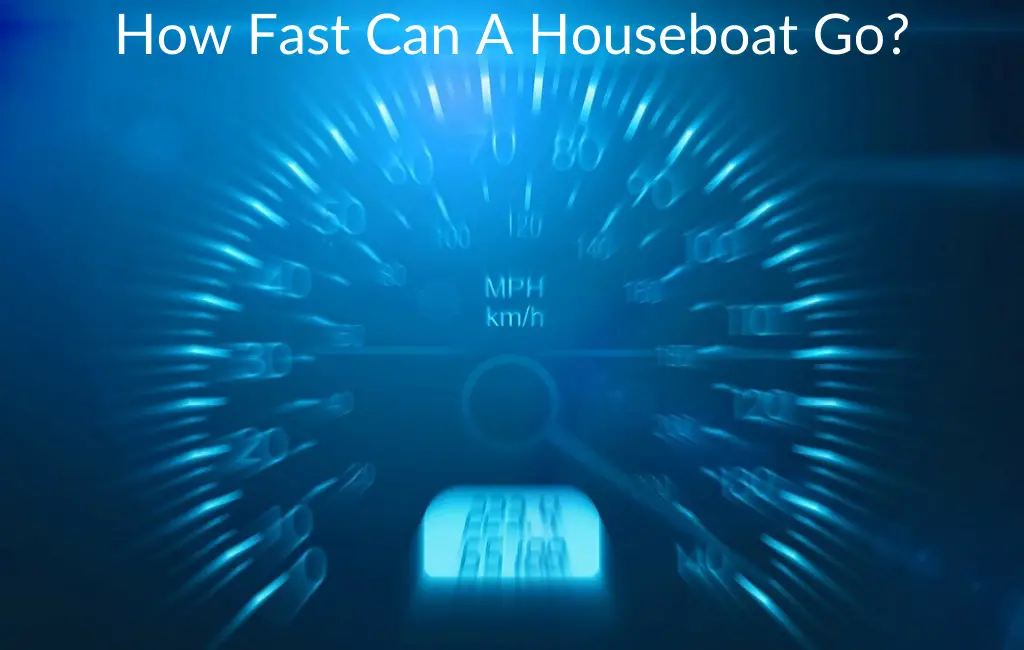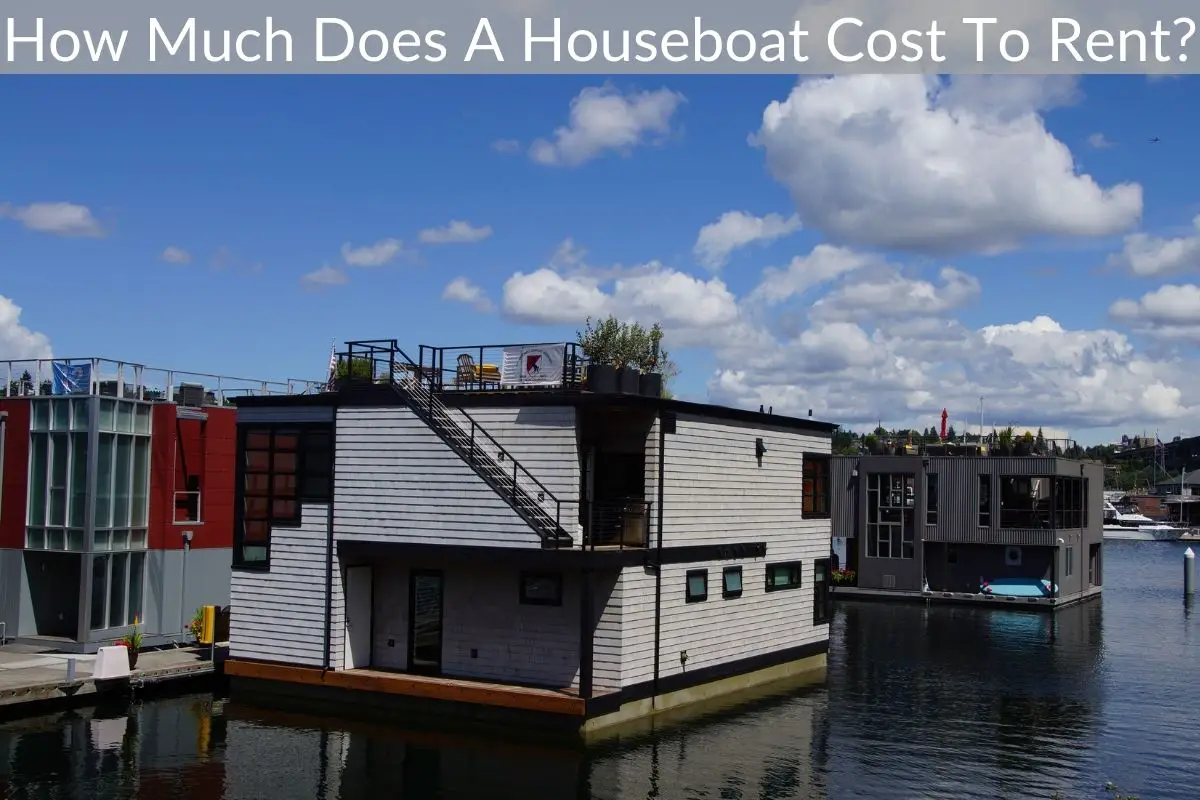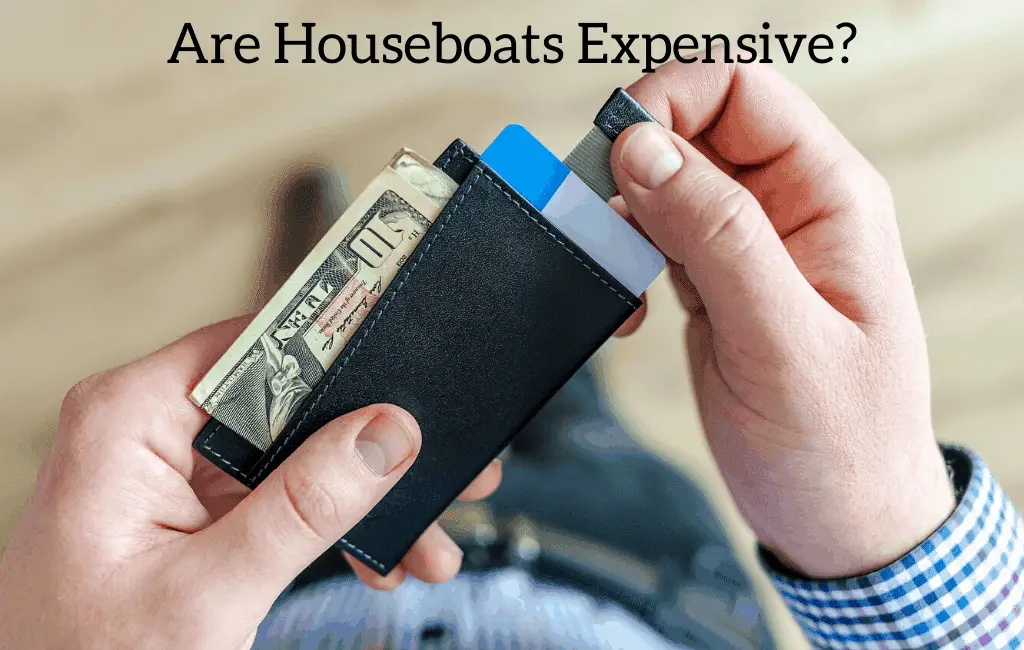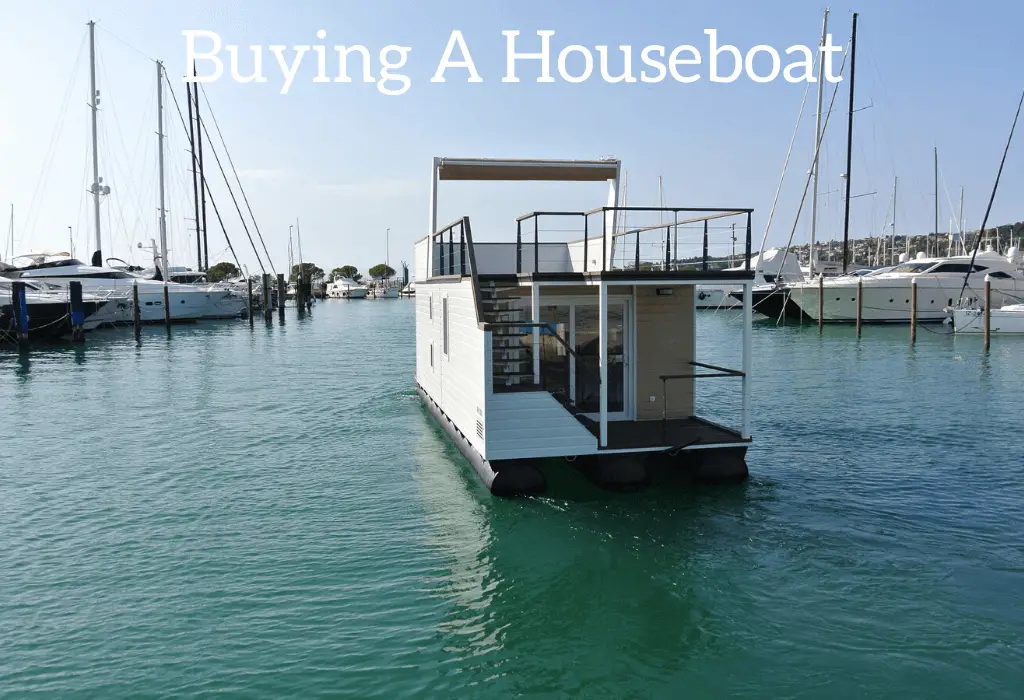Do you want to buy a houseboat but aren’t sure if they are safe?
*This post may contain affiliate links. As an Amazon Associate we earn from qualifying purchases.
Houseboats, just like any other vessel or house are as safe as you make them. If you don’t take proper preventative steps then your houseboat won’t be safe, however with the proper planning you can make sure it’s safe.
There are many things you can do to make your houseboat safe. We will discuss some of those ways to make and keep your houseboat safe below.
Ways to keep your houseboat safe:
- Proper fuel storage
- Have a carbon monoxide detector
- Keep life jackets on board and in good condition
- Know how to swim
- Pay attention
- Stay Sober
These and other tips will help you keep safe while on your houseboat and keep your houseboat safe. We will go into more depth of those and other tips in this article
Proper fuel storage
The safest way to carry additional fuel for your boat, generator etc. is in a mounted tank. Of course you will want to be sure that any additional tank is mounted properly and in the center of the boat so as not to cause the boat to possibly tip.
Assuming you don’t want to mount a fuel tank then that leaves you with portable tanks. If choosing a portable tank don’t just stack a bunch of normal gas cans on board your boat. They make many different low profile tanks that can hold from 3 gallons up to 24 gallons. With many inverter generators burning 4-5 gallons of fuel per 24 hours of running that means a 24 gallon fuel tank will get you 4-5 days of full time generator running.
That should be plenty for most trips off shore or even if you are living on your houseboat full time, that will mean you don’t have to go ashore but once a week or so assuming you aren’t running your generator 24/7. If you are living full time on your houseboat you will most likely want larger fuel tanks anyway.
Carbon monoxide detector
Carbon monoxide can be a series issue on a boat if the motor or generator isn’t properly vented. Having a carbon monoxide detector is essential to keep your houseboat safe. Since CO is odorless, colorless, and tasteless, it can be extremely deadly if not prevented.
Having a proper carbon monoxide detector for your houseboat is essential. Sensorcon makes a waterproof carbon monoxide detector that works well in a wet environment and will keep you safe while boating.
You can buy cheaper CO detectors but I personally wouldn’t take a chance with any of them unless they are waterproof. If you are going to be on the water you want something that is designed to withstand any water that might accidentally splash on it.
Keep life jackets on board
Life jackets are one of the best prevention methods you can use to keep your houseboat safe. Not only are life jackets a great way to keep your houseboat safe they are also required by laws in many states.
Far too often, people think that since they can swim then they don’t need a life jacket for them on board. Nothing could be further from the truth!
You should have 1 life jacket available for every person on your boat. So if you have 10 people on board you also need 10 life jackets on board. That includes people who say they are “good swimmers” or that “don’t need one”.
I’m not saying to be the person that requires all of your friends to have them on every time you are on board (although that is a good idea for kids), but they should be available if needed.
I recently went on a cruise with my wife and in every room they had life jackets for every person on board. It wasn’t because they thought the boat would crash or that we weren’t “good swimmers”, it was simply to help protect us in the event of a storm or other catastrophe.
It is good to take the same precautions with your houseboat. Have the proper number of life jackets on board so if a quick storm blows up everyone on board will have one and can make sure they stay safe.
Know how to swim
Knowing how to swim can be important for everyone but even more so if you are going to be a boater.
If you have a pool, you will want your kids to know how to swim to help keep them safe and also have more fun.
You should want the same for yourself and others on the boat.
Knowing how to swim will not only keep you safer but it will also allow you to have more fun on your boat.
The first time that in water that was over my head I was scared out of my mind. I was 10 or 11 at the time and was swimming in a friends pool. The pool slowly sloped until about 8 foot deep and we were just staying in the shallow part.
My sister threw something in the part that was a bit deeper (maybe 6 feet deep) and it had sunk to the bottom. Being the smart kid I was I thought i could just walk on the bottom, grab it real fast and walk back to the shallow part. Obviously that didn’t work well and I thrashed around until I got the few feet back to where I could touch the bottom again.
Fast forward to a few years ago, I was with my family at a river near us. I use the term river loosely as it couldn’t be more than 30 foot across but it is quite fast moving.
I got into the current and got pulled down the river a little ways from where we were swimming. When I got to the rocky shore and attempted to stand up, I realized that the water was way deeper where I was at and I couldn’t touch the bottom!
Since I knew how to swim rather than freaking out like I had done all those years before, I just pushed away from the bank went a little further down river and climbed out there.
Knowing how to swim took away all that anxiety that I felt years before in that pool and knowing how to swim will make your houseboat much more enjoyable as well.
Knowing how to swim and having others on board that know how to as well will make your time much more enjoyable and far less stressful
You will be less anxious about being on a boat and will enjoy your boating life much more.
Pay attention
This is probably the number one way to stay safe on a houseboat, PAY ATTENTION! Don’t become too comfortable while driving the boat or while on board.
Now obviously you shouldn’t be always worried but always pay attention to your surroundings.
If people are swimming, fishing, or just lazing about, never get too comfortable.
Keep your eye on the horizon for storms that may blow in.
Keep an eye on the people on board.
Pay careful attention when driving or docking the boat.
Carefully watch everyone in the water including doing a head count every few minutes.
I could go on and on but just like when driving a car you should always be watching.
I often take my kids to a pool, river, or lake on hot summer days. I have way less fun with them there than I would by myself because I’m always looking for them and making sure that they are safe.
Do the same for the people you have on board your boat.
It’s a good idea to every once in a while take a walk around to check things out and check on everyone on board.
If people are in the water keep an eye on them to make sure no one has gone under without being noticed. If you only have adults on board this might be a little overkill but it only takes a few short minutes for something tragic to happen.
Always be vigilant on your boat.
Stay sober
Obviously this could go without saying but far too often people get alcohol in their system and forget that they are putting others and themselves in danger.
Sure, it might be ok for you to have a few drinks as long as you aren’t planning on moving the boat anytime soon but I would never get much more than tipsy even if I wasn’t driving the boat anywhere.
You are on water that moves! If you get drunk, walking on the boat can become much more difficult. If you fall in the water your slower reflexes and brain fog could mean you get injured or worse because you had too much to drink.
Also, always be sure and never drive the boat if you have had anything to drink. Just like you should have a designated driver with a car, if you are planning on moving the boat make sure you have a designated driver for that as well.
Common sense goes a long way in keeping everyone on board your houseboat safe. Use your knowledge of the water and your boat to keep yourself and your passengers safe.
There are many other things you can do to keep safe on your houseboat but these tips will help you make sure that everyone has a good time and makes it home safely!
How Safe Are Houseboats?
When it comes to boating on the water, you might be wondering how safe houseboats are. Here are a few things to keep in mind: lightning, Carbon monoxide, and maintenance. These precautions can help keep everyone safe and prevent accidents. Also, if you own a houseboat, you should know the water conditions before launching it. Knowing this will help prevent damage to the boat and the water itself.
Safety equipment on houseboats
While many houseboats come equipped with a number of safety devices, a number of individuals may be unaware of the importance of the equipment. Personal floatation devices, for example, are important for the safety of those onboard. A houseboat will have several different types of smoke detectors and may also be equipped with a first aid kit. It is important to know where these items are located so that you can easily access them in case of a disaster.
Carbon monoxide detectors are another piece of safety equipment on houseboats. They are installed in each area and are sensitive to even very low levels of CO. They beep and flash if they detect the dangerous gas. Although carbon monoxide is colorless, odorless, and tasteless, it can be deadly if the level rises too high. While early symptoms of carbon monoxide poisoning are similar to seasickness, prolonged exposure to this gas can lead to death.
Parents’ primary concern is the risk of drowning, which can be mitigated by placing their child in a life jacket. However, children can slip out of sight and fall into the water. They should be supervised at all times so that they don’t drown. Houseboats also feature gates and railings. However, parents should remember to close doors whenever they leave the cabin area. In addition, they should also keep sunscreen on hand in case of emergencies.
Fire extinguishers are also essential safety equipment on houseboats. By law, the USCG requires that boats equipped with gasoline and oil carry a hand portable fire extinguisher. The extinguisher must be in good working condition and easily accessible at the helm. Moreover, houseboats must be anchored during the night to prevent the risk of drowning or flooding. To this end, they are also equipped with ample anchors and high quality marine ropes.
Lightning
Lightning can strike anywhere, including a houseboat. Lightning is typically most dangerous during the afternoon, and you should wait at least 30 minutes after the last strike to enter the water. Lightning strikes can also affect electronics on a boat, so you should lower or tether radio antennas and other protruding devices. If lightning does strike, stay inside the boat and lock doors and windows. If you’re not on the water, stay indoors until the threat passes.
When storms are approaching, houseboats can be safer. Lightning-resistant houseboats are designed with a conductive shell to divert electricity away from sensitive parts. This prevents electrical shocks and damage to equipment. Installing a weather alarm system, tuning in to the local weather service, and keeping an eye on the forecast are other ways to protect yourself. The more protection you have, the more comfortable you’ll feel when you’re on the water.
If lightning strikes a houseboat, electronics are especially vulnerable. Depending on the model, the damage may be mechanical and electrical, so a lightning strike could harm your boat’s electronics. Those electronics can lead to a fire if they come in contact with a metal object. Moreover, the main conductor of the boat’s electrical system is vulnerable to lightning strikes and could be damaged. You’ll want to make sure to have it checked before leaving your boat during a storm.
A lightning dissipator is another option for protecting houseboats from lightning. These devices mount on the mast of a houseboat and prevent lightning from striking it. They also reduce the static ground charge created by lightning. If you don’t have a mast on your houseboat, you can still install a lightning dissipator. It is a great idea to keep electronics and passengers safe from lightning.
Carbon monoxide poisoning
A multi-agency investigation into deaths related to carbon monoxide poisoning on houseboats was recently published by the CDC’s Morbidity and Mortality Weekly Report. The investigation identified nine fatal and about one hundred nonfatal cases since 1990. Approximately thirty of these incidents occurred near the rear deck of a houseboat while the generator was running. High carbon monoxide levels can quickly deplete the oxygen in the air, leading to a deadly situation.
While carbon monoxide is a rare occurrence, the symptoms of CO poisoning can be deceiving. Early symptoms can mimic those of heat stress, sea sickness, or intoxication. If you notice these symptoms, seek out fresh air immediately. Once you’ve figured out which symptom is more likely to be the result of CO poisoning, you can take action to help yourself recover. To prevent the risk of exposure, turn off any possible carbon monoxide sources, and open windows and doors to let fresh air into the cabin.
If you are on a houseboat, it is especially important to make sure that your boat has a carbon monoxide exhaust system. In addition to installing a venting system, houseboat manufacturers should improve their public awareness campaign and make sure their boat cabins have carbon monoxide detectors. The interagency team also recommended that houseboat manufacturers ensure their products have working carbon monoxide detectors to protect boat passengers.
The Centers for Disease Control and Prevention conducted investigations of CO-related deaths and poisoning on houseboats, and developed engineering controls to minimize the hazard. CO levels are measured with exhaust emission analyzers, detector tubes, evacuated containers, and direct-reading CO monitors. Although the final written report has not been released, these results are encouraging. The findings of these investigations should encourage houseboat owners to consider adding the controls to their houseboats, and to install them before the 2003 boating season.
Maintenance
The most important way to stay safe while operating a houseboat is to pay attention. Never get comfortable and always watch the horizon for storms. The same applies to the people onboard. Also, pay attention while driving and docking. You should always wear a life jacket, even if you think you won’t need it. Read all warnings posted throughout the vessel to learn how to operate it safely. Keeping an eye out for storms and dangerous conditions will help keep you safe.
Carbon monoxide is another potential danger on houseboats. This gas is colorless, odorless, and tasteless and enters the body through the lungs. It consumes oxygen in the bloodstream and can cause a number of dangerous symptoms. Early signs of carbon monoxide poisoning are irritated eyes, headache, nausea, and weakness. Unfortunately, these symptoms are often mistaken for seasickness, and can be dangerous if left untreated.
While most houseboats use gas-powered generators, their presence may put people at risk for carbon monoxide exposure. The National Park Service warned the Coast Guard of a potentially lethal hazard back in 1994 but the agency failed to act. The study also identified controls that could limit carbon monoxide exposure. A new rule that states houseboats must be equipped with a life vest should be implemented onboard.
Lightning strikes a boat less often than other vehicles, but houseboats are not immune. Lightning strikes a boat at a one-in-a-thousand chance. Even though lightning rarely strikes boats, it can hurt people near its path. Lightning strikes are rare on houseboats, but it’s important to know what to look for. Lightning strikes can destroy electronics, wiring, or any metal object. Lightning protection measures on a houseboat include side flash conductors and grounding plates.
Insurance
When looking for houseboat insurance, you should look for coverage for your personal property. This coverage will pay out if the houseboat is destroyed or stolen. It also covers equipment permanently attached to it, such as TVs, stereos, computers, and fishing gear. Some policies include additional coverage for items like jewelry and clothing. Additionally, you can get coverage for the tender, which is attached to your houseboat. Some policies include both options, so make sure you get the right kind of coverage.
Houseboats are unique homes. While they are often close to the city and quiet in nature, they also come with risks. There’s always the risk of collisions and leakages, which are particularly high in houseboats. Insurance for houseboats can help minimize these risks and keep you and your family safe. For more information about houseboat insurance, check out our blog. This article will help you to choose the right coverage for your boat.
Houseboats face the same risks as any other watercraft, and many insurers treat them as such. Nevertheless, you should make sure you have adequate coverage if you live entirely on your houseboat. You will also need liability insurance. Liability insurance protects you financially if an accident occurs on your houseboat, and it’s also important to protect your boat’s investment. You may find that your policy is not enough, but you should get it anyway.
When choosing houseboat insurance, remember that deductibles play an important role. Higher deductibles reduce the amount of money you’ll have to pay, so you might want to consider getting a marine survey. A marine survey will determine whether a houseboat is structurally sound. If you’re buying houseboat insurance to replace a boat, consider getting a professional to assess the vessel’s condition. By making these adjustments, you’ll save money on your premium.

